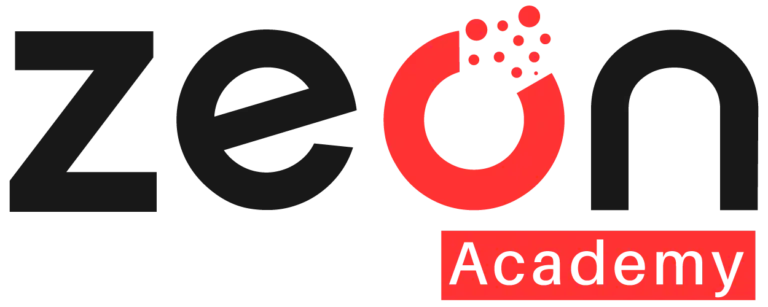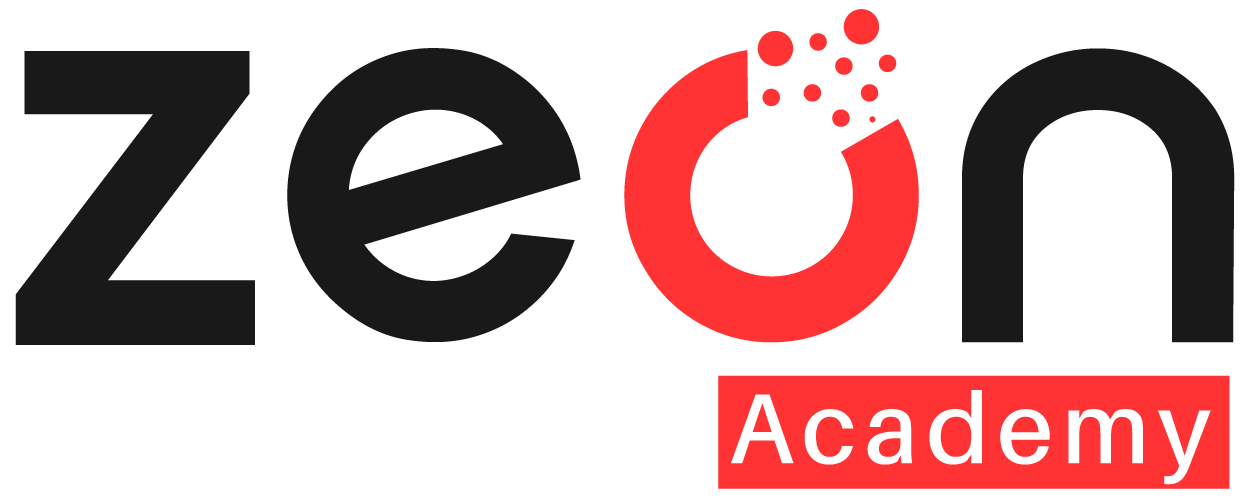How Focused Skill Training Can Change Your Career Direction
Most people believe a career change requires years of preparation, expensive degrees, or starting from scratch. That belief keeps them stuck in jobs they’ve outgrown.
The truth is simpler. Focused skill training can shift your career direction in months, not years. You don’t need to go back to college or abandon everything you’ve built. You need the right skills, learned the right way, applied to real opportunities.
This is about understanding how skill-based careers work today, why focused training beats traditional education for career change, and how digital marketing specifically opens doors faster than most fields.
Why Traditional Career Paths No Longer Work for Everyone
Twenty years ago, career paths were predictable. You studied one field, joined one industry, and stayed there for decades.
That model is broken now.
Industries change faster than degree programs can update. Jobs that didn’t exist five years ago are now in high demand. Employers care more about what you can do than what degree you hold.
The new career reality looks like this:
Skills matter more than credentials. Companies hire based on capability, not just qualifications. A portfolio of real work beats a certificate with no experience.
Career change is normal. People switch fields multiple times in their working life. The average person changes careers three to five times, not jobs, but entire career directions.
Learning never stops. The skills you have today won’t be enough in three years. Continuous learning is the only way to stay relevant and competitive.
Remote and freelance opportunities are everywhere. You don’t need to be in a specific city or work for one company. Skills let you work from anywhere, for anyone, or build your own practice.
Traditional education prepares you for stability that no longer exists. Focused skill training prepares you for opportunity that does.
What Makes Skill Training Different From Regular Education
Skill training is not the same as getting another degree or taking random online courses.
Here’s the difference:
Education teaches theory. Training teaches application. A degree explains concepts. Skill training makes you do the work until you can deliver results independently.
Education takes years. Training takes months. You can become job-ready in 3 to 6 months with focused skill training. Traditional courses stretch timelines because they cover everything. Training focuses on what actually gets used in the industry.
Education gives certificates. Training builds portfolios. Employers don’t care about course completion certificates. They care about seeing real projects, campaigns you’ve run, results you’ve generated, and proof that you can handle responsibility.
Education is general. Training is specific. Degrees cover broad topics. Training zeroes in on high-demand skills that employers actively pay for right now.
Focused skill training works because it removes everything unnecessary and teaches only what moves your career forward.
Why Digital Marketing Is One of the Best Skills for Career Change
Not all skills are equal when it comes to career change. Some take too long to learn. Some have limited job openings. Some require expensive tools or networks you don’t have access to yet.
Digital marketing is different. It’s one of the fastest, most flexible, and most in-demand skills you can learn to change your career direction.
Here’s why:
Every Business Needs It
Small businesses, startups, retail brands, real estate companies, hospitals, schools, consultants, coaches. Everyone needs digital marketing. Demand is not limited to one industry. If a business wants customers, it needs someone who understands online visibility, content, ads, and engagement.
You Can Start With What You Have
You don’t need expensive software, a studio, or a team. Digital marketing can be learned and practiced with a laptop and internet connection. You can build campaigns, test strategies, and create portfolios without spending lakhs on setup.
Results Are Measurable
Unlike vague corporate roles where impact is hard to prove, digital marketing shows clear results. You can point to increased traffic, better engagement, more leads, higher sales. Employers and clients trust people who can show measurable outcomes.
Multiple Career Paths Open Up
Digital marketing is not one job. It’s a collection of skills that lead to different opportunities:
- Work in an agency managing multiple clients
- Join a company as an in-house marketer
- Freelance and work with businesses directly
- Start your own agency or consultancy
- Offer specialized services like ad management or content strategy
- Combine it with another skill and become a niche expert
It Pays Well, Fast
Entry-level digital marketers earn between 3 to 5 lakhs per year. With six months to one year of real experience, that jumps to 6 to 10 lakhs. Freelancers and agency owners often earn more because they control pricing and work with multiple clients.
Compare that to most traditional fields where it takes five years to reach similar income levels.
It Grows With You
As you get better, your options expand. You can move into strategy roles, leadership positions, or high-ticket consulting. Digital marketing is not a dead-end skill. It’s a foundation that compounds over time.
What Focused Training Actually Looks Like
Focused training is structured, hands-on, and outcome-driven. It’s not about watching videos and taking quizzes. It’s about doing real work under guidance until you’re confident and capable.
Here’s what makes training effective:
Live Learning, Not Recorded Lectures
Recorded content is useful for reference, but real learning happens through interaction. Live sessions let you ask questions, get feedback, clarify doubts, and learn from others in real time.
Real Projects, Not Hypothetical Exercises
Theory alone doesn’t prepare you. You need to run actual campaigns, create content for real audiences, manage budgets, analyze data, and handle client feedback. Training should involve live projects that go into your portfolio.
Mentorship and Feedback
Learning alone is slow and confusing. Focused training includes mentors who’ve worked in the field, who can review your work, point out mistakes, suggest improvements, and guide your growth.
Industry-Relevant Tools
You need to learn the same tools companies actually use. Google Ads, Meta Ads Manager, Google Analytics, SEO platforms, email marketing software, content tools. Training should make you comfortable with these before you enter the job market.
Portfolio Building as Part of the Process
By the end of training, you should have a portfolio of real work. Campaigns you’ve built, content you’ve created, results you’ve generated. This portfolio is what gets you hired or wins clients.
Job Readiness, Not Just Skill Knowledge
Training should prepare you for interviews, client pitches, freelance negotiations, and workplace expectations. Knowing digital marketing is one thing. Knowing how to position yourself, communicate value, and land opportunities is another.
How to Know If Skill Training Is Right for You
Skill training works best for people in specific situations. If any of these apply to you, focused training can genuinely change your career direction:
You’re stuck in a job with no growth. Your current role has no learning, no challenge, and no future. You want out, but you don’t have a clear alternative yet.
You’re between jobs and need to upskill fast. Waiting for the right opportunity isn’t working. You need a skill that makes you hireable quickly.
You want to switch industries but don’t want to start at the bottom. You have work experience, but in a different field. You need a skill that lets you transition without losing years of progress.
You’re a business owner or entrepreneur who needs to understand digital growth. You’re tired of depending on agencies or freelancers who don’t deliver. You want to understand digital marketing yourself so you can make better decisions.
You want flexibility and control over your career. You don’t want to be stuck in one company or one location. You want a skill that lets you freelance, consult, or build your own business.
You’re a student or recent graduate who realized your degree won’t get you hired. You have a qualification, but no practical skills. You need something that makes you immediately useful to employers.
If you see yourself in any of these, focused skill training is worth considering seriously.
What Happens After You Complete Training
Training is the starting point, not the finish line. What matters is what you do after.
Here’s the typical path people follow after focused digital marketing training:
Option 1: Get a Job in an Agency or Company
You apply for digital marketing roles with your portfolio. Entry-level positions include content marketer, social media executive, ad specialist, SEO analyst. With real projects in your portfolio, you stand out from candidates who only have certificates.
Option 2: Start Freelancing
You reach out to small businesses, startups, and local brands offering specific services. Social media management, Google Ads, content creation, SEO. Freelancing lets you work with multiple clients, build experience fast, and earn while you grow.
Option 3: Offer Services to Your Network
You start by helping people you already know. Friends running businesses, family members with startups, former colleagues who need marketing support. These early projects build your confidence and portfolio.
Option 4: Join a Startup
Startups need people who can do multiple things. Digital marketing roles in startups give you exposure to strategy, execution, analytics, and growth. You learn faster because you handle more responsibility early.
Option 5: Build Your Own Agency or Consultancy
Once you’ve worked with a few clients and understand how to deliver results, you can build your own business. Many successful agency owners started as freelancers, grew their client base, and eventually hired teams.
The path you choose depends on your goals, but the skill itself opens all these doors.
Common Mistakes People Make When Trying to Change Careers
Career change fails more often than it succeeds. Not because people aren’t capable, but because they approach it wrong.
Here are the most common mistakes:
Trying to learn everything at once. They take ten courses in ten different fields hoping something sticks. Focus beats variety. Pick one high-demand skill and go deep.
Learning without applying. They collect certificates but never do real work. Knowledge without execution doesn’t build confidence or credibility.
Waiting to feel ready before starting. They think they need to be perfect before they apply for jobs or take clients. You get better by doing, not by preparing endlessly.
Choosing skills based on interest, not demand. They learn what sounds fun instead of what the market actually pays for. Passion matters, but demand matters more when you’re trying to change careers.
Not building a portfolio. They assume their resume or certificate will speak for itself. Employers and clients want proof. Show your work or lose to someone who does.
Giving up after the first rejection. Career change takes persistence. One no doesn’t mean the skill doesn’t work. It means you need to improve your positioning, portfolio, or approach.
How Long Does It Actually Take to Change Careers Through Skill Training
People overestimate how long career change takes because they compare it to traditional education timelines.
Here’s the realistic breakdown:
3 to 6 months for training. Focused digital marketing training takes 3 to 6 months if done seriously. This includes live learning, projects, portfolio building, and mentorship.
1 to 3 months for job search or client acquisition. After training, you spend time applying, networking, pitching, and interviewing. Some get opportunities within weeks. Others take a few months. It depends on effort and positioning.
Total time: 6 to 9 months from zero to career change. In under a year, you can move from a completely different field into a digital marketing role with decent pay and growth potential.
Compare that to going back to college for two or three years. Skill training compresses the timeline drastically without compromising on results.
Why Most People Fail at Career Change and How to Avoid It
Career change fails for predictable reasons. If you know them upfront, you can avoid them.
Reason 1: No clear goal. People say they want a career change but don’t define what that means. Changing to what? Doing what role? For what kind of company or client? Vague goals produce vague results.
Solution: Decide exactly what role or opportunity you’re targeting. Be specific. Don’t just say digital marketing. Say social media manager, ad specialist, freelance content marketer. Clarity drives action.
Reason 2: Learning in isolation. They take online courses alone, never interact with instructors or peers, and get stuck without guidance. Isolation kills momentum.
Solution: Choose training that includes live interaction, mentorship, and community. Learning with others keeps you accountable and speeds up progress.
Reason 3: No real-world practice. They finish training but have no portfolio, no projects, no proof of capability. Theory doesn’t translate to opportunity without application.
Solution: Build projects during training. Work on real campaigns. Volunteer for small businesses. Create case studies. By the end of training, you should have work to show.
Reason 4: Inconsistent effort. They start strong, lose motivation halfway, and stop before finishing. Inconsistency guarantees failure.
Solution: Commit to a schedule. Treat training like a job. Show up daily, even when you don’t feel like it. Consistency beats intensity.
Reason 5: Fear of putting themselves out there. They learn the skill but never apply for jobs, pitch clients, or share their work. Fear of rejection keeps them invisible.
Solution: Start before you feel ready. Apply even if you think you’re not perfect. Pitch even if you’re nervous. Action beats fear every time.
What to Look for in a Digital Marketing Training Program
Not all training programs are equal. Some are genuinely good. Some are overpriced and outdated. Here’s how to evaluate:
Live learning, not just recorded videos. If it’s only pre-recorded content, you’re just buying a course. Real training involves live sessions with interaction and feedback.
Portfolio-building projects. The program should include real projects that go into your portfolio. If they don’t help you create work samples, it’s not focused training.
Experienced trainers who’ve worked in the industry. Check if trainers have actually done digital marketing work, not just taught it. Experience matters.
Coverage of all core digital marketing areas. SEO, social media, content marketing, Google Ads, Meta Ads, email marketing, analytics. A good program covers the full spectrum.
Placement support or freelance guidance. Training should prepare you for what comes after. Job application support, interview prep, freelance setup guidance, client pitching strategies.
Real reviews and outcomes from past learners. Look for testimonials with details. Did people get jobs? Start freelancing? Build businesses? Vague praise means nothing. Specific outcomes matter.
Reasonable duration and pricing. Three to six months is ideal. Anything shorter is too rushed. Anything longer is unnecessarily stretched. Pricing should reflect value without being exploitative.
Final Thought: Career Change Is a Decision, Not a Dream
Most people treat career change like a distant dream. Something they’ll do someday when the timing is perfect.
The timing will never be perfect. There will always be reasons to wait.
Career change is not about waiting. It’s about deciding and committing.
Focused skill training works because it removes the biggest barriers. Time, cost, complexity, uncertainty. It gives you a clear path, real skills, and measurable outcomes in months.
Digital marketing specifically works because demand is high, barriers are low, and opportunities are everywhere.
If you’re reading this and feeling stuck in your current career, here’s the truth: You don’t need permission. You don’t need more time. You don’t need a perfect plan.
You need one focused skill. Real training. Consistent effort. And the courage to start before you feel fully ready.
That’s how career change actually happens.



